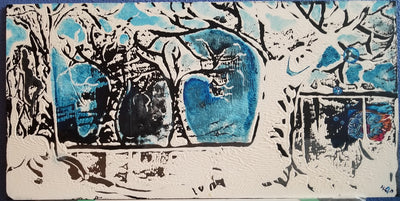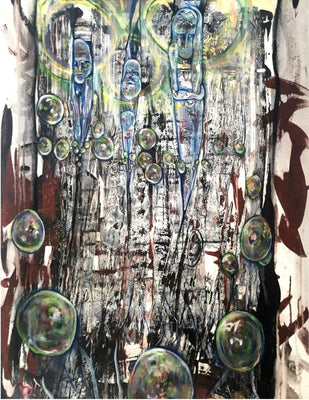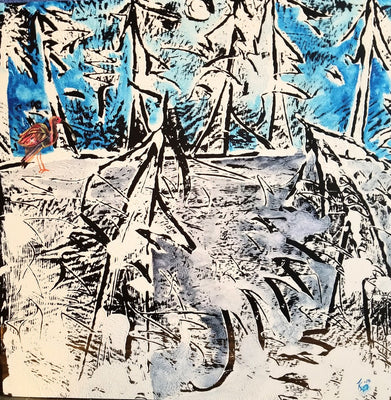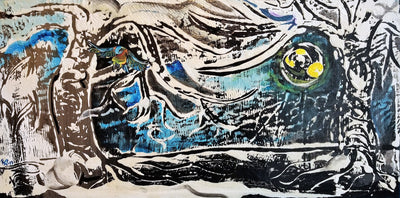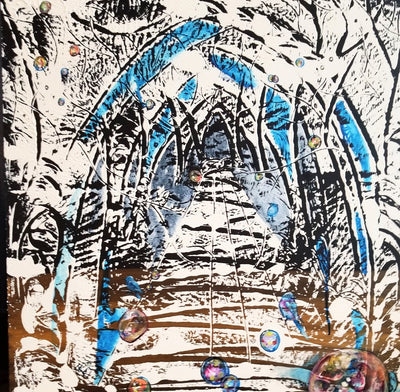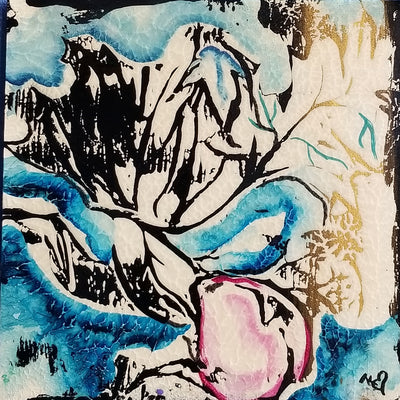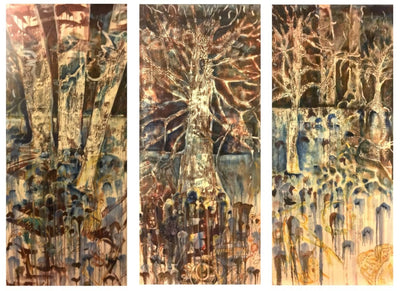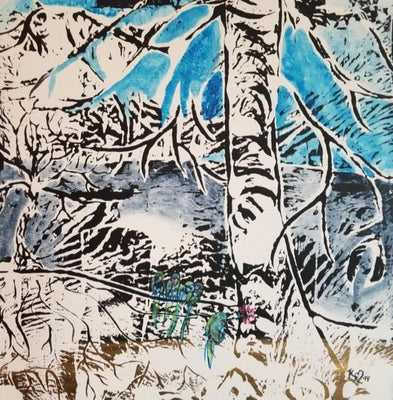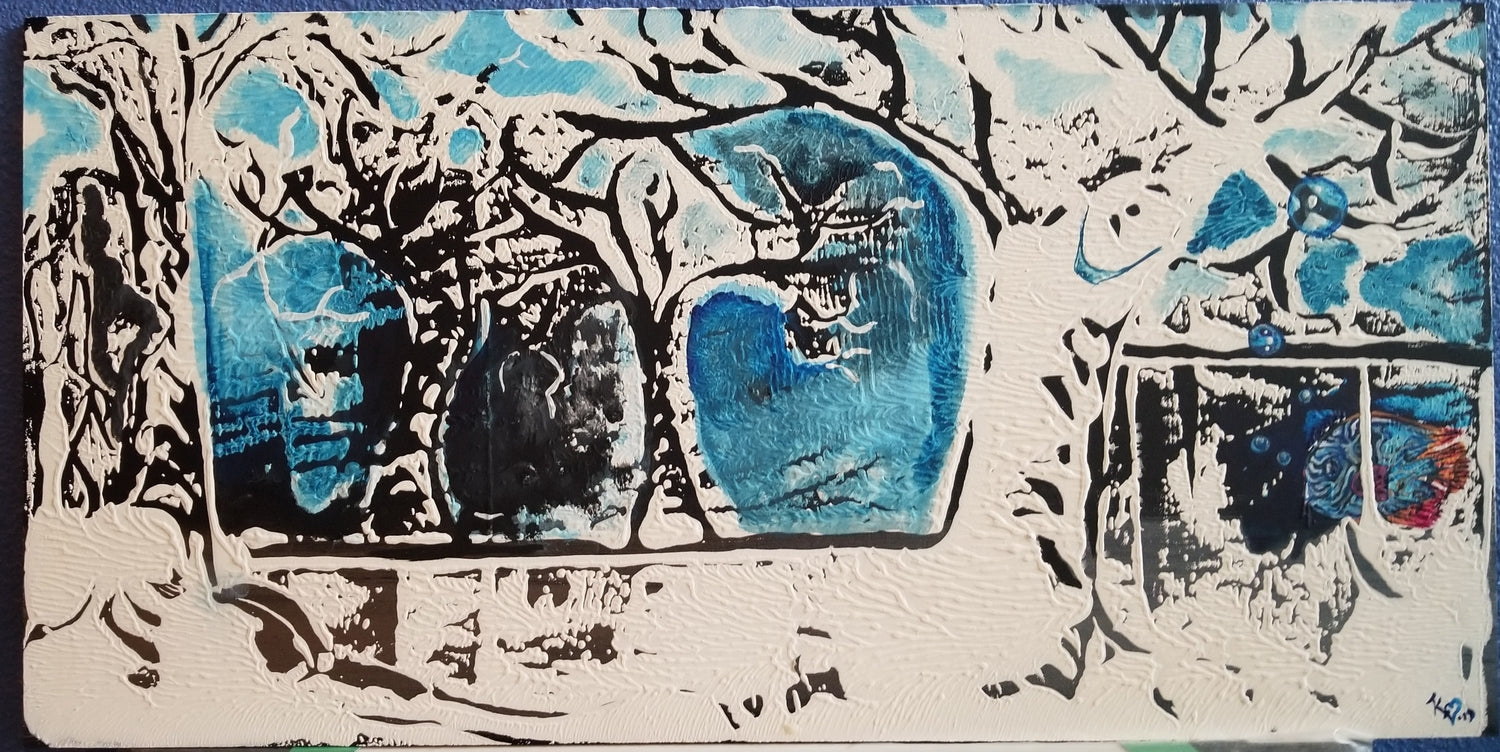
Carol Rashawnna Williams
Bio
Taught by International Photographer/Artist Bob Haft and International Artist Hiro Kawasaki faculty from The Evergreen State College, Carol’s work has a strong conceptually organic trajectory. Images that are genderless, spiritual yet ‘earthy’ seem to evoke tragedy and hope at the same time. Carol has a BA in Advanced Studio Fine Arts and a MA Degree in Organizational Development (emphasis in Diversity and Leadership). Her work is in collections at The City of Seattle, The Evergreen State College and numerous other institutions and homes in the Pacific NW.
Artist Statement
Influenced by Van Gogh, Salvador Dali, Frida Kahlo, Caravaggio, Jean-Michel Basquiat, Jacob Lawrence, NW Indigenous Art and African American Gee’s Bend Quilt Traditions along with Asian American line work, Carol Rashawnna Williams’ imagery grows together thru paintings that reflect the organic nature of the Pacific Northwest. Her paintings speak to social, environmental and racial justice. Utilizing diverse perspectives, forms seem to fall, swim, fly even drip and grow through various levels of reality.
Carol’s Large-Scale Mono-Prints have been developed over time with a unique technique: she creates these works of art on her kitchen table, which gives them their texture and organic feel. Recently, she has started to use this technique to explore large scale social impact art installations created with a human centered design focused on topics that address Race, Equity & Climate Justice. Carol is deeply interested in this guiding assumption ( the exhibition at Seattle University): race and climate justice are directly connected; In order to understand and change our current economic model: we need to acknowledge that the design is in our current thinking & paradigm: resource extraction is at the heart of both outcomes, the only way to shift race relations and understand climate change…is through equitable models, equitable solutions and equitable relationships to the land and animals. This means investing in sustainable models that do not operate from a scarcity model, but operate from a power model: collective ownership, collective alternatives, valuing biospecies and sustained environmental practices over time.

Please wait, it may take sometime ...
1-Always Use "Landscape" mode Layout in print settings.
2-Use default margins.

Carol Rashawnna Williams
Influenced by Van Gogh, Salvador Dali, Frida Kahlo, Caravaggio, Jean-Michel Basquiat, Jacob Lawrence, NW Indigenous Art and African American Gee’s Bend Quilt Traditions along with Asian American line work, Carol Rashawnna Williams’ imagery grows together thru paintings that reflect the organic nature of the Pacific Northwest. Her paintings speak to social, environmental and racial justice. Utilizing diverse perspectives, forms seem to fall, swim, fly even drip and grow through various levels of reality.
Carol’s Large-Scale Mono-Prints have been developed over time with a unique technique: she creates these works of art on her kitchen table, which gives them their texture and organic feel. Recently, she has started to use this technique to explore large scale social impact art installations created with a human centered design focused on topics that address Race, Equity & Climate Justice. Carol is deeply interested in this guiding assumption ( the exhibition at Seattle University): race and climate justice are directly connected; In order to understand and change our current economic model: we need to acknowledge that the design is in our current thinking & paradigm: resource extraction is at the heart of both outcomes, the only way to shift race relations and understand climate change…is through equitable models, equitable solutions and equitable relationships to the land and animals. This means investing in sustainable models that do not operate from a scarcity model, but operate from a power model: collective ownership, collective alternatives, valuing biospecies and sustained environmental practices over time.

